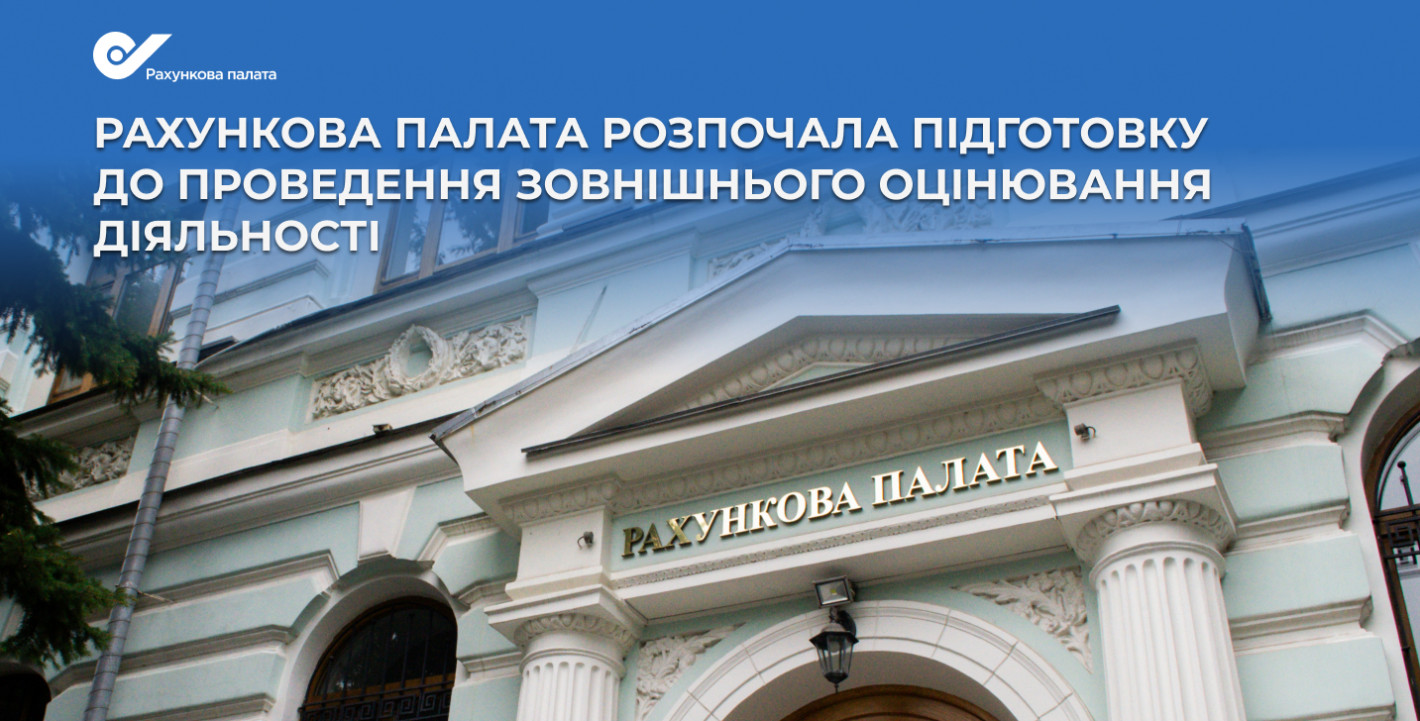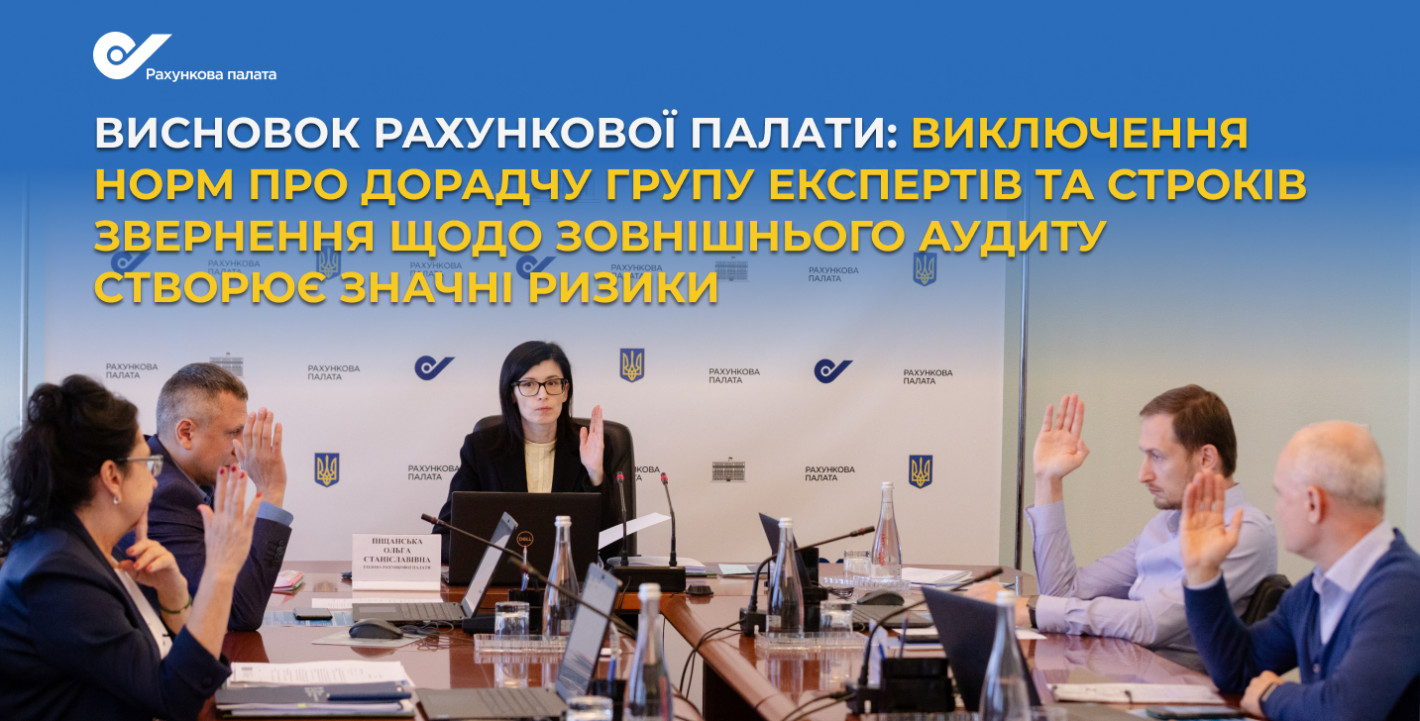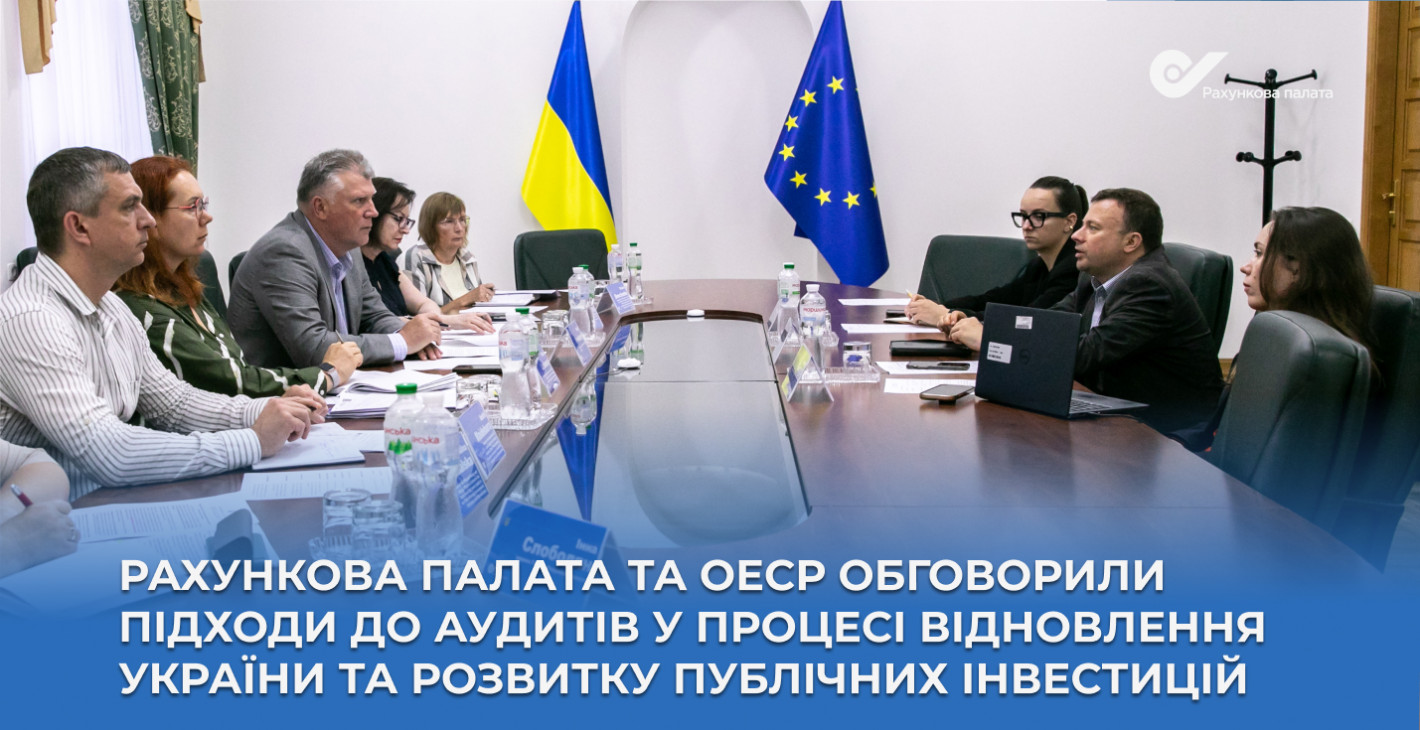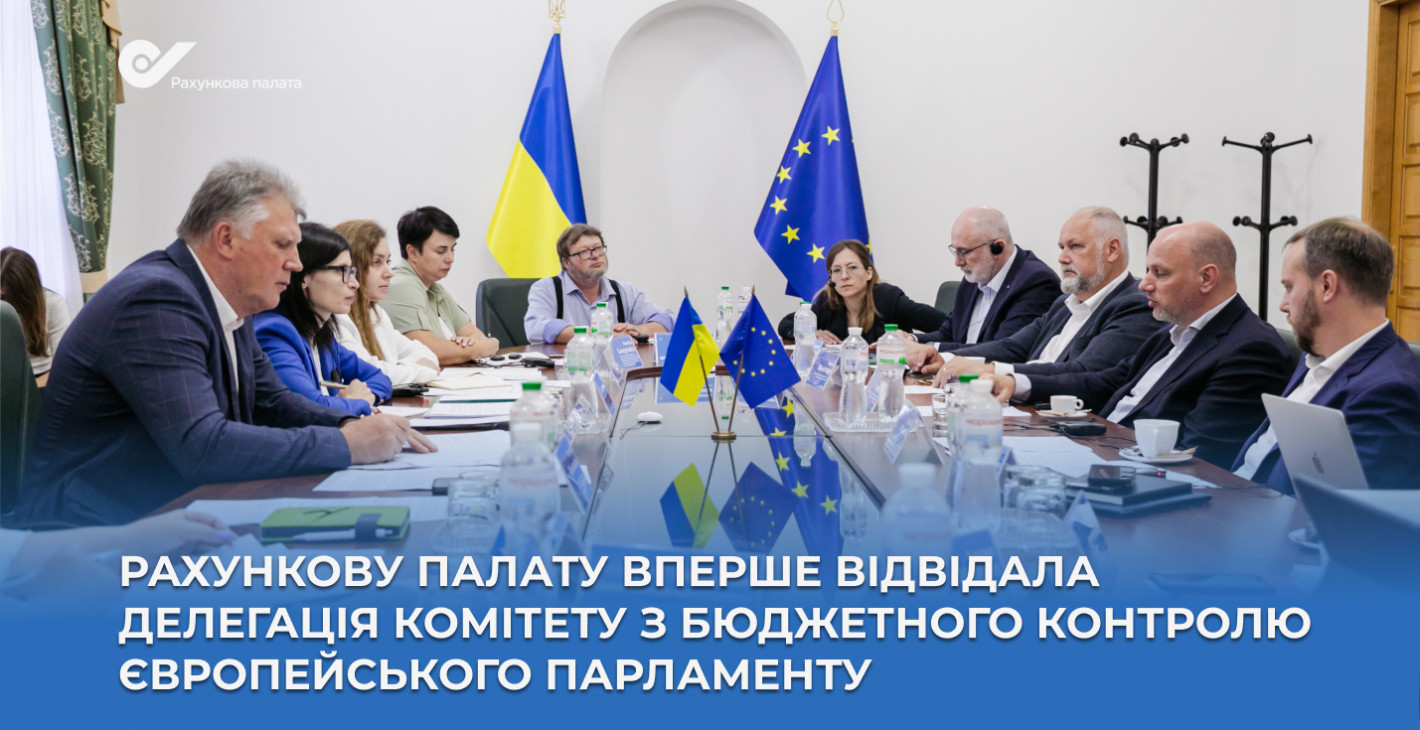Only one of the six internally displaced persons selected to receive a subsidized mortgage was ultimately able to take out a loan. This happened due to the imperfection of the candidate selection system, which led to the inefficient use of resources within the “Housing for Internally Displaced Persons” project, which has been implemented in Ukraine since 2021.
At its meeting on July 2, the Accounting Chamber approved the Report on the results of the International coordinated performance audit on the topic “Residential premises for internally displaced persons: facilitating the integration of families at their new place of residence with the support of the Federal Republic of Germany under martial law”.
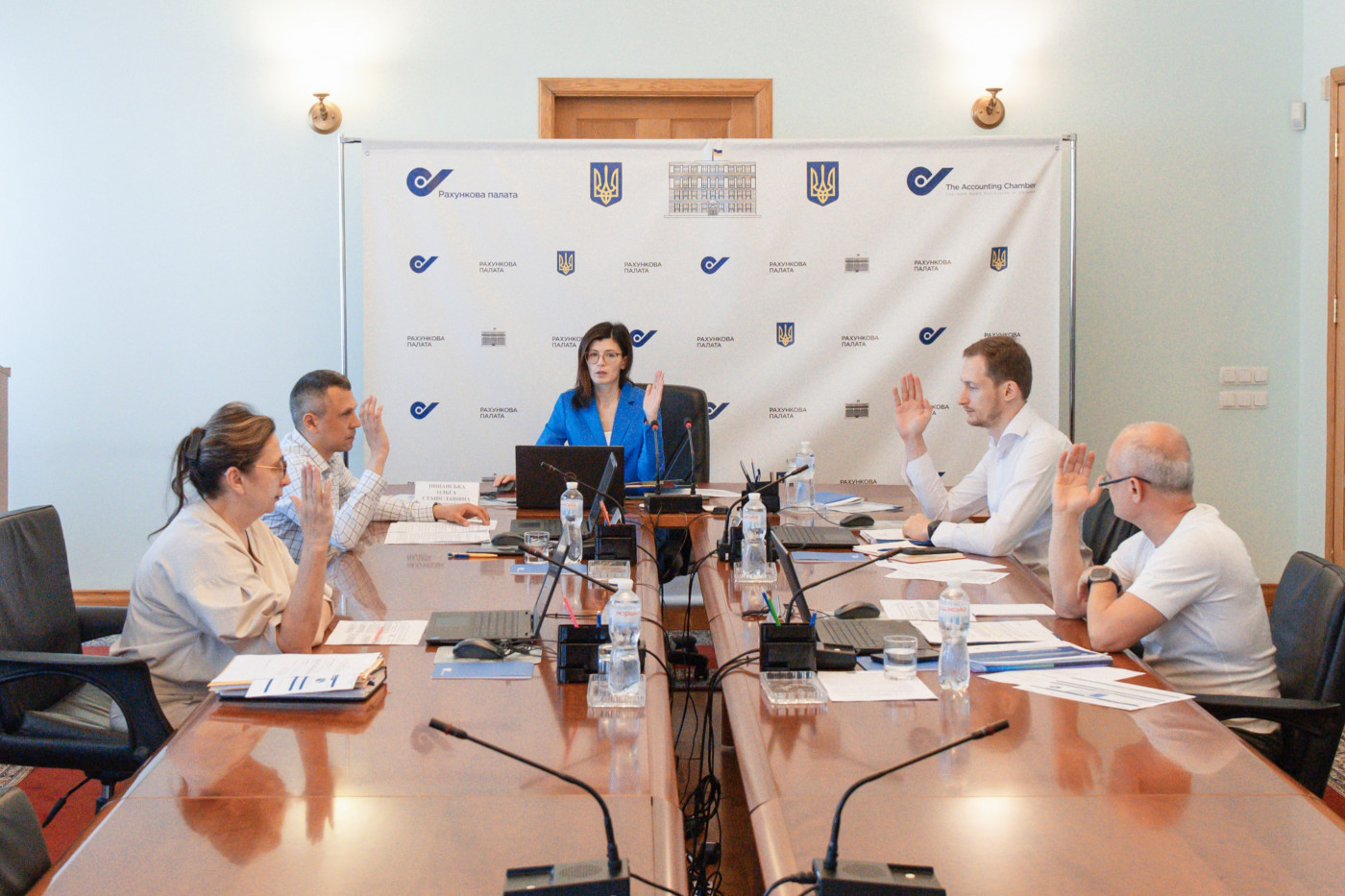
As part of the audit, the system of providing preferential mortgage loans with the funds of a grant from the Federal Republic of Germany was analyzed in order to provide IDPs with their own housing. The recipient of the funds is the Ministry of Reintegration of Temporarily Occupied Territories, and the lending was carried out by the State Specialized Financial Institution “State Fund for Support of Youth Housing Construction” (SFYH). The audit covered the years 2021-2023 and the first quarter of 2024.
So, in general, for the years 2021-2023, the German government allocated €25.5 million to the project, and in December 2023 an agreement was reached on the allocation of an additional €17 million. It was planned to provide credit for the purchase of housing for 1 300 families with these funds. Mortgage terms, in particular: 30 years at 3% per annum.
As the auditors found, even at the selection stage, there were problems with identifying real candidates for a loan due to the inconsistency of the criteria for inclusion in the register list of candidates and the terms of granting a loan. In particular, to be included in the register, a person had to have Ukrainian citizenship, IDP status, and not receive any other assistance. However, the conditions for granting the loan were additionally required: stable solvency, the ability to make the first installment on the loan in the amount of 6%, a good credit history, lack of other housing for family members, etc.
A total of 35 500 people registered to participate in the selection, but as a result of 15 selections, only every sixth applicant out of 4 230 selected winners was able to issue a loan. These are 669 families (55.8% of the planned number). There was no contact with the rest of the candidates, either they were not in Ukraine, or they were insolvent.
Also, due to the inconsistency of the criteria for including the applicant in the register list and the terms of granting the loan, 9 000 working hours of SFYH employees were ineffectively spent on consultations and registration of the winners of the selections, who were registered, but ultimately did not participate in the Project.
The peculiarity of the Project is that loan contributions from borrowers were directed to a revolving fund, from which new participants were to be credited in the future. In 2021-2022, SFYH accumulated funds in this fund, but did not use them at all for preferential mortgage lending to IDPs. And only in 2023 and the first quarter of 2024, 50 preferential mortgage loans were financed with the funds of the revolving fund. At the same time, delays in the distribution of these funds led to the fact that 24 borrowers during this time lost the opportunity to purchase housing on credit.
The audit also found that the terms of the program did not regulate the issue of further repayment of the loan in the event of loss or damage to the mortgaged housing. For example, 15 objects of residential real estate, purchased by borrowers with grant funds and mortgaged, were destroyed (1 object was completely destroyed, 14 were damaged). To purchase a new home instead of the destroyed one, the borrower received a housing certificate and purchased a new apartment. The mortgage was terminated on the destroyed housing, and a five-year ban on alienation was imposed on the purchased one. That is, SFYH lost the collateral for the loan.
According to the Ministry of Social Policy of Ukraine, as of the end of March of this year, there were already 4.8 million forced migrants in Ukraine. According to the World Bank, approximately 10% of all residential buildings in the country were destroyed as a result of the aggressor’s attacks. Therefore, the provision of housing for IDPs is the main condition for the successful integration of this category of citizens in their new place of residence.
“This Project has no analogues in Ukraine, it applies exclusively to the category of internally displaced persons, and also has a unique mechanism for selecting participants, which makes it impossible to interfere in the selection of third parties,” said a member of the Accounting Chamber Serhii Kliuchka during the meeting.
.jpg)
According to him, in order for as many internally displaced persons in need of housing as possible to receive a preferential mortgage loan, the Accounting Chamber recommends that the objects of the audit eliminate a number of identified deficiencies. In particular:
- the Cabinet of Ministers of Ukraine to regulate the process of mortgage transfer to the creditor of housing purchased with the use of a housing certificate, instead of the destroyed one, as well as to regulate the issue of cancellation of debt under the mortgage contract;
– the Ministry of Reintegration to regulate the issue of the use of funds of the revolving fund and their supervision;
- the SFYH to update the list of candidates for mortgages, streamline the use of funds from the revolving fund and the process of their distribution.
The objects of control present at the meeting of the Accounting Chamber agreed with the conclusions of the auditors, noting that they are already taking separate measures to eliminate inconsistencies. German federal court of auditors
.jpg)
It should be noted that this audit of the Accounting Chamber was carried out within the framework of the International coordinated audit with the German Federal Court of Auditors (Bundesrechnungshof). Based on the results of the national audits of the Ukrainian and German SAIs, a joint report will be prepared as a result, which is planned to be presented to the public in October this year.



